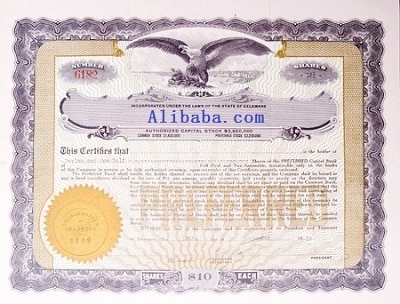
Would you buy an Internet business like Alibaba from a Nigerian spammer?
Think the Alibaba.com IPO was a good ecommerce investment for those who bought last Friday?
Before you answer that question, imagine you received a Nigerian spam email that offered you equity in Konga.com. When you read the fine print, you discover that you would really be buying shares in a Cayman Islands’ shell corporation that has a contract to receive Konga’s net profits.
Would you invest?
Of course not. Even though Konga is a legitimate website, you wouldn’t be buying equity in the entity that owned Konga.
The real winners in Alibaba’s initial public offering
There were definite winners in Alibaba’s IPO. They include the company’s founder (Jack Ma), the Chinese government, and the usual Wall Street suspects as underwriters (Goldman Sachs, JP Morgan Securities, Citigroup et al.).
What did people buy in the Alibaba IPO?
But what exactly did the new partial owners get when they bought stock at $93 per share?
Not equity ownership in Alibaba.
Really?
I wish I were joking.
The Chinese government restricts foreign ownership in certain fields, such as technology. This created a hurdle to actually buying equity in Alibaba.
So what do people own who paid $93 per share? Stock in an offshore shell corporation that pretty much exists only on paper with a postal mailing box.
Why?
The shell corporation has a contract to receive Alibaba’s net profits.
Why the Alibaba IPO was a bad deal for stock purchasers
So what’s the problem?
To start with, the contract is only enforceable as long as the Chinese government agrees that it is. If Beijing decides the contract is invalid, three guesses what happens to the profits that the shell corporation is supposed to receive.
What if the ChiComs decide the contract is invalid?
How can you trust that all of Alibaba’s net profits are being disclosed and turned over to the shell corporation?
Wouldn’t this issue come up during due diligence?
It did for any prospective shareholder who actually performed due diligence before buying equity.
Three major problems with the Alibaba IPO
Aren’t you just being unreasonably cynical?
Perhaps. But consider the following three points.
First, Alibaba wanted to do its IPO in Hong Kong rather than the United States. There were enough red flags, including corporate governance issues, to prevent that from happening.
Second, the Alibaba IPO was sold by Wall Street underwriters who had a large financial interest in making this deal happen regardless of how badly the new shareholders get screwed. The media, a bunch of tech and financial illiterates, went along with the story like lemmings.
Third, Jack Ma spun off the ecommerce payment system from the company too. If you’ve got total control of a site’s payment system, how valuable is the rest of the site? And how transparent are the financials when it comes to auditing Alibaba for revenues? Mr. Ma may be the most honest Internet entrepreneur on the planet, but if he gets a call from Beijing that tells him to hide 80% of the profits, he will comply if he wants to stay rich (and live).
Perform due diligence before buying an Internet company
Whether you’re buying shares in a publicly traded company (e.g. Google, Facebook, Amazon, etc.) or trying to acquire a private e-commerce business, due diligence is a must.
And when it comes to claims by others that it’s a good deal, trust but verify. Your CPA and Internet business lawyer can help you avoid costly mistakes when purchasing a privately held Internet company.
